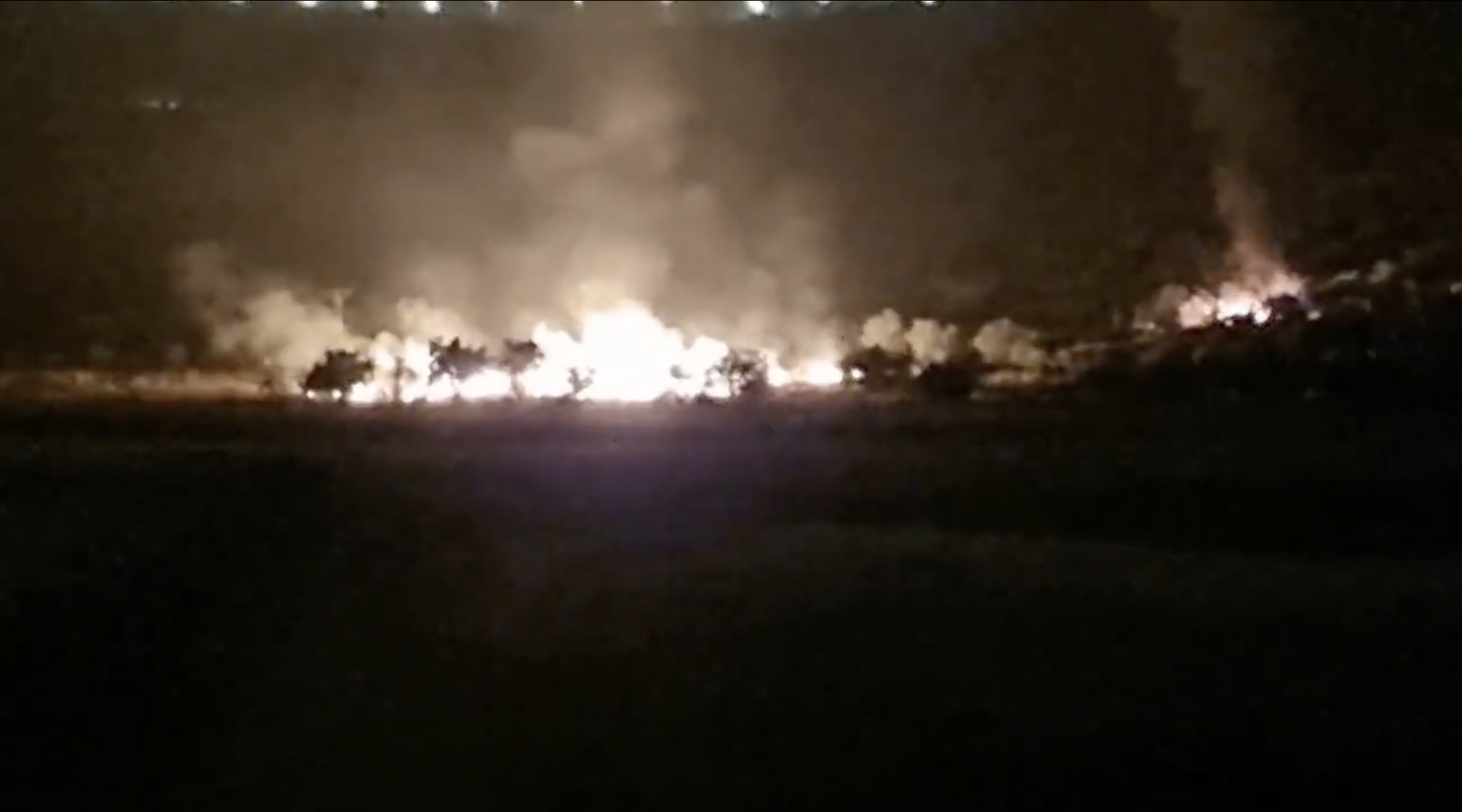Settlers riot in West Bank following deadly terror attack
The Israel Defense Forces had warned settlers not to ‘take the law into their own hands,’ according to Israeli media

A conflagration burns in the West Bank during an Israeli settler riot following a terror attack on Tuesday. (Screenshot)
(JTA) — Israeli settlers torched cars and crops in the West Bank following a Palestinian terror attack, the latest conflagration in what has been a violent year in the territory.
The riot, in which dozens of Palestinians were wounded, followed a shooting earlier on Tuesday by Palestinian gunmen in the Israeli settlement of Eli that killed four people, including two teenagers. That shooting came one day after an Israeli military raid in the Palestinian West Bank city of Jenin that killed six Palestinians, including one teen, and wounded more than 90. Palestinian militants wounded eight Israeli soldiers in the fighting on Monday.
The riot on Tuesday night was a reprise of a similar incident in February, when Israeli settlers rioted in the Palestinian village of Huwara following a terror attack there that killed two Israeli brothers. Following that incident, settler leaders including Bezalel Smotrich, the far-right finance minister, publicly suggested wiping out the village, though Smotrich later said he had been misunderstood.
The Israel Defense Forces feared retaliatory violence on Tuesday night and warned settlers not to “take the law into their own hands,” according to the Israeli publication Ynet. But that admonition appeared not to deter the rioters. As in February, according to reports in Israeli media, they torched at least one store as well as cars and agricultural fields, and threw rocks at Palestinians. The activity took place in multiple villages near Nablus, including Huwara, according to local media reports. Three Israelis were arrested for arson, and an Israeli soldier was seen firing in the air in an attempt to quell the riots.
Since the beginning of the year, more than 100 West Bank Palestinians have been killed in Israeli military raids and more than 20 Israelis have been killed in Palestinian terror attacks.
Violent incidents targeting Palestinians have risen sharply in recent years, according to Israeli government data. After the February riot, which a top military commander joined others in calling a “pogrom,” some settler leaders remained silent or explicitly said they were unapologetic.
This article originally appeared on JTA.org.
A message from our Publisher & CEO Rachel Fishman Feddersen

I hope you appreciated this article. Before you go, I’d like to ask you to please support the Forward’s award-winning, nonprofit journalism so that we can be prepared for whatever news 2025 brings.
At a time when other newsrooms are closing or cutting back, the Forward has removed its paywall and invested additional resources to report on the ground from Israel and around the U.S. on the impact of the war, rising antisemitism and polarized discourse.
Readers like you make it all possible. Support our work by becoming a Forward Member and connect with our journalism and your community.
— Rachel Fishman Feddersen, Publisher and CEO

























